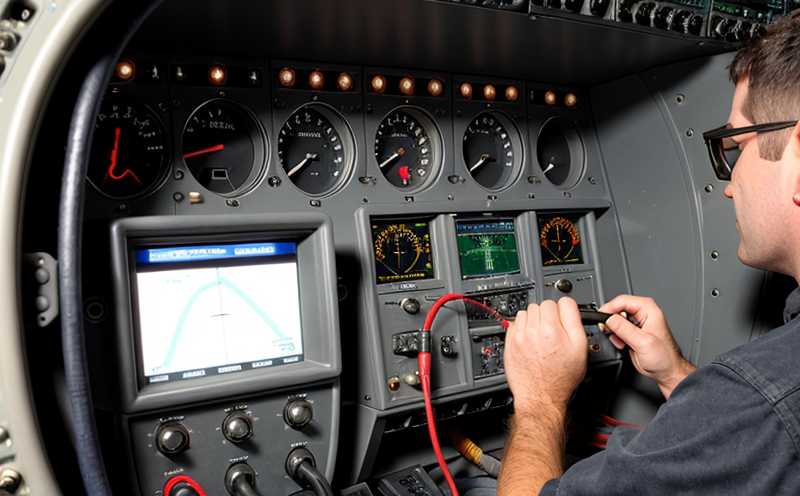ISO 1542 Aircraft DC Power Distribution Testing
The ISO 1542 standard is a critical benchmark in the aerospace industry that ensures the reliability and performance of aircraft direct current (DC) power distribution systems. This service focuses on testing these systems to meet stringent aviation safety requirements, ensuring that they operate safely under all conditions.
The primary purpose of this test is to validate the DC power distribution system's ability to deliver stable voltage levels across various loads and ensure that it meets the specified electrical performance criteria as defined in ISO 1542. This includes testing for voltage stability, current flow, and fault tolerance under normal operating conditions and during simulated faults.
The test setup involves a series of carefully designed scenarios aimed at simulating real-world flight conditions. These include altitude changes, temperature variations, and operational load fluctuations. The system is subjected to these stress tests to ensure that it can maintain its integrity and reliability throughout the entire flight cycle.
During testing, the DC power distribution system undergoes thorough inspection for any signs of degradation or failure. This includes monitoring critical parameters such as voltage, current, resistance, and capacitance at various points within the circuit. The use of advanced instrumentation allows for precise measurement and recording of these parameters, ensuring accurate data collection.
The testing process also involves a rigorous examination of the system's ability to handle faults. This includes simulating short circuits, overloads, and other potential failure modes to assess the system's fault tolerance and recovery capabilities. The goal is to ensure that the DC power distribution system can safely recover from such events without compromising flight safety.
Following testing, a comprehensive report is generated detailing all test results and any issues identified during the process. This report serves as an important tool for quality assurance and continuous improvement efforts within the aerospace industry. It provides valuable insights into the performance of the DC power distribution system and helps identify areas for enhancement.
The ISO 1542 standard is widely recognized for its comprehensive approach to ensuring the reliability and safety of aircraft electrical systems. By adhering to this standard, manufacturers can demonstrate their commitment to quality and compliance with international aviation regulations. This not only enhances customer confidence but also contributes to the overall safety and efficiency of air travel.
Our laboratory employs a team of experienced engineers who are well-versed in ISO 1542 testing methodologies. They ensure that each test is conducted rigorously and accurately, providing clients with reliable data and actionable insights. The use of state-of-the-art equipment guarantees the precision and reliability of our testing results.
- Testing Parameters: Voltage stability, current flow, resistance, capacitance
- Fault Simulation: Short circuits, overloads, other potential failures
- Environmental Factors: Altitude changes, temperature variations
Applied Standards
The ISO 1542 standard is supported by a wide range of international standards that further enhance the reliability and performance of aircraft DC power distribution systems. These include:
- ISO 783: Electrical Insulation—Measurement of Dielectric Strength
- ASTM D149: Standard Test Method for Dielectric Breakdown Voltage and Dielectric Strength of Liquid Dielectrics in IEC 60250-10
- IEC 60034-28: Rotating Machinery—Electrical Tests
These standards provide additional layers of validation and ensure that the DC power distribution systems meet not only ISO 1542 requirements but also broader industry expectations.
Industry Applications
The application of ISO 1542 testing is extensive, covering a wide range of aerospace and aviation components. This includes:
- Avionics systems
- Battery management systems
- Power distribution units (PDUs)
- Electrical wiring interconnect systems (EWIS)
The testing of these components ensures that they operate reliably and safely, contributing to the overall performance and safety of aircraft. This is crucial in an industry where even minor failures can have severe consequences.
Quality and Reliability Assurance
- Consistent Testing: Ensuring that all components undergo the same rigorous testing process to maintain uniform quality standards.
- Data Accuracy: Utilizing advanced instrumentation to provide precise measurements and detailed reports.
- Fault Isolation: Identifying and isolating faults to prevent them from causing significant disruptions or failures.
- Continuous Improvement: Using test results to drive ongoing improvements in design and manufacturing processes.





